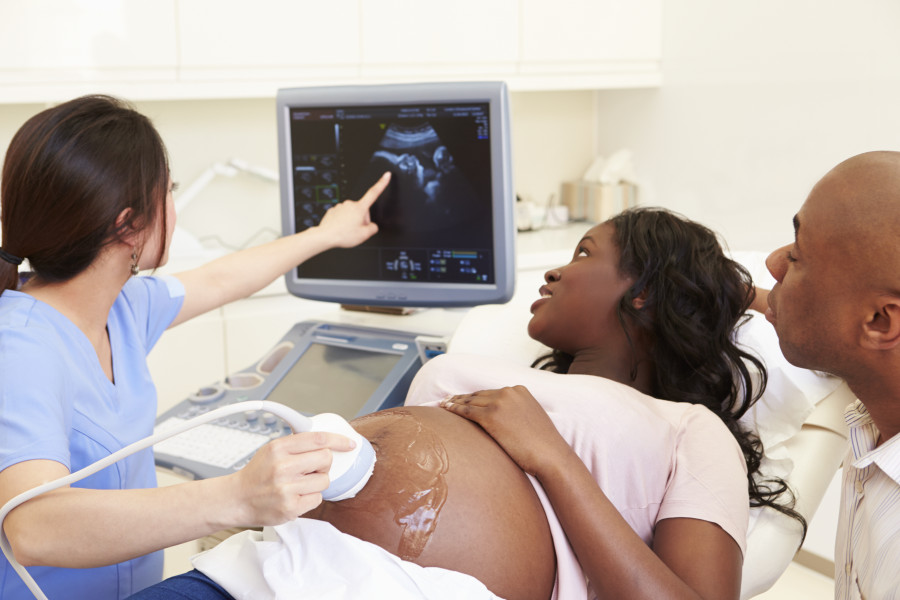Over the years, Elsie Amoako has heard dozens of traumatic birthing and postnatal stories from Black parents in Ontario – but she’s hoping to change that through this year’s MinoFest conference.
The event aims to catalyze positive change in racialized maternal-newborn health and practices throughout Canada.
“It’s not necessarily a festival but the goal is to bring back joy to Black mothering and post-natal care. After years of engaging our clients, a lot of healthcare professionals want to come together to share the work we’re doing through a conference,” Amoako said.
“There’s a billion stories and commonalities from Black people who have experienced harm in some way – whether having a surgery they didn't agree to or feeling disrespected when seeking care. One mom was postpartum and one of the nurses walked in and started making fun of her hijab. She asked for help and she was ignored and her life was put at risk because her pain was ignored,” said Amoako.
According to research published in the National Library of Medicine, the mistreatment and unsettling experiences are far too common among Black patients. The results show stark disparities in perinatal outcomes between Black and white expectant parents within the Ontario health care system.
This includes an increased risk of diabetes, placental abruption, preterm birth, emergency cesarean sections, low birth weight for babies, perineal tears, and many more alarming outcomes for Black patients.
In fact, according to Mino Care, 40% of Black mothers will suffer from postpartum depression while 8.9% of infants born to Black women in Canada were preterm, as compared with 5.9% of infants born to white women.
“We had people who were executive directors faint and pass away after months of giving birth because they did not receive adequate postnatal care. We have some clients who are non-status citizens reaching out because they need help and they end up in rural communities. This often ends up in situations where they have serious mental health issues because they don't have resources within their communities,” said Amoako.
Some doctors are raising the alarm, specifically highlighting what they see on the frontlines when caring for Black and Indigenous communities.
“We live in a country which aspires to provide health care for all and yet we see consistently that health outcomes aren't the same for all Canadians,” said Dr. Farah Shroff, the keynote speaker at this year’s MinoFest and the founder of Maternal and Infant Health Canada.
Only by addressing colonialism and racism does Shroff believe healthcare outcomes will improve for Black and racialized folks.
“The healthcare system is a mirror of the society within which it's created. So the healthcare system isn't different from Canadian society. The Canadian society created racism and colonialism and then created a healthcare system. Of course the healthcare system is going to have racism and colonialism embedded into its very foundational structures. So all of that needs to be taken apart and really examined for communities of color,” said Shroff.
This year’s Minofest will focus on the postpartum phase which can be anywhere between 10 months to two years after giving birth. The non-profit found that although many of their clients gave birth up to five years ago, they’re still in need of mental health support.
“Birth affects people psychologically and in the body forever – life is never the same again. It’s one of the biggest things that happens in our lives – if not the biggest, so it's time we see that focus instead of in the background where it is now. We need to make sure we’re getting birthing people everything they need to stay grounded,” said Amoako.
She explained how the non-profit is hoping to create space for discussions that will lead to more policies that will benefit birthing people. Her goal is to be able to walk into clinics, malls and even work spaces that provide resources for reproductive care.
“There’s a push for the government to provide free doula services for residents or even companies to provide free doula services for employees. We’ve seen this in the U.S. but not in Canada, yet, a person's experience with birthing isn't just seen in hospitals but in all areas of our life.”
The conference has a diverse lineup of speakers from the U.S. and Canada, and takes place at Daniels Spectrum in Regent Park. For more information, visit https://www.minofest.com

 By
By 





